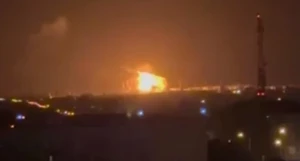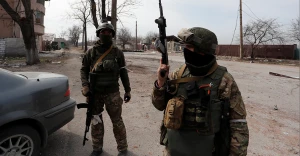
There is no worse word than 'Russians' now - former Presidential Commissioner for Children's Rights Kuleba
Mykola Kuleba, former Presidential Commissioner for Children's Rights and founder of the Save Ukraine Foundation, believes that Russia is on a mission to destroy Ukrainian identity
He said this on Espreso TV.
“Russians have a barbaric ideology that destroys everything. The Russians' goal is to destroy children, adults, and any Ukrainian identity. If a child grows up in Ukraine, they would rather kill him or her than allow the child to grow up and become a Ukrainian. We need to get used to the correct understanding of the concepts of 'Russians' and 'Russia.' We often call them 'fascists' or 'orcs,' but we need to call a spade a spade - they are 'Russians,' and we can't think of a worse word,” Kuleba emphasized.
The former Presidential Commissioner for Children's Rights added that the Russians came to kill, rape and destroy Ukrainians, and nothing is sacred to them.
“They have been destroying us for the last 100 years, and this is still going on. But the Ukrainian DNA is sprouting and continues to work. The Russians have already reached the point where they need to destroy us to the root,” Kuleba said.
-
Foreign Minister Dmytro Kuleba said that Russia's most heinous crime is the forced deportation of Ukrainian children, possibly tens of thousands.
-
Vice Prime Minister of Ukraine Iryna Vereshchuk appealed to Russian Human Rights Commissioner Tatyana Moskalkova and Russian Children's Rights Commissioner Maria Lvova-Belova and asked them to provide lists of Ukrainian orphans who are in the occupied territories and deported to Russia.
-
On March 1, the lawyer of the Regional Center for Human Rights Kateryna Rashevska reported that the Russian Federation has deported more than 1.5 million Ukrainian children to its territory since the beginning of the aggression against Ukraine.
-
Human Rights Ombudsman Dmytro Lubinets said that Russia is trying to solve the main problem - demographic - by taking Ukrainians to its most remote regions.
- News














































